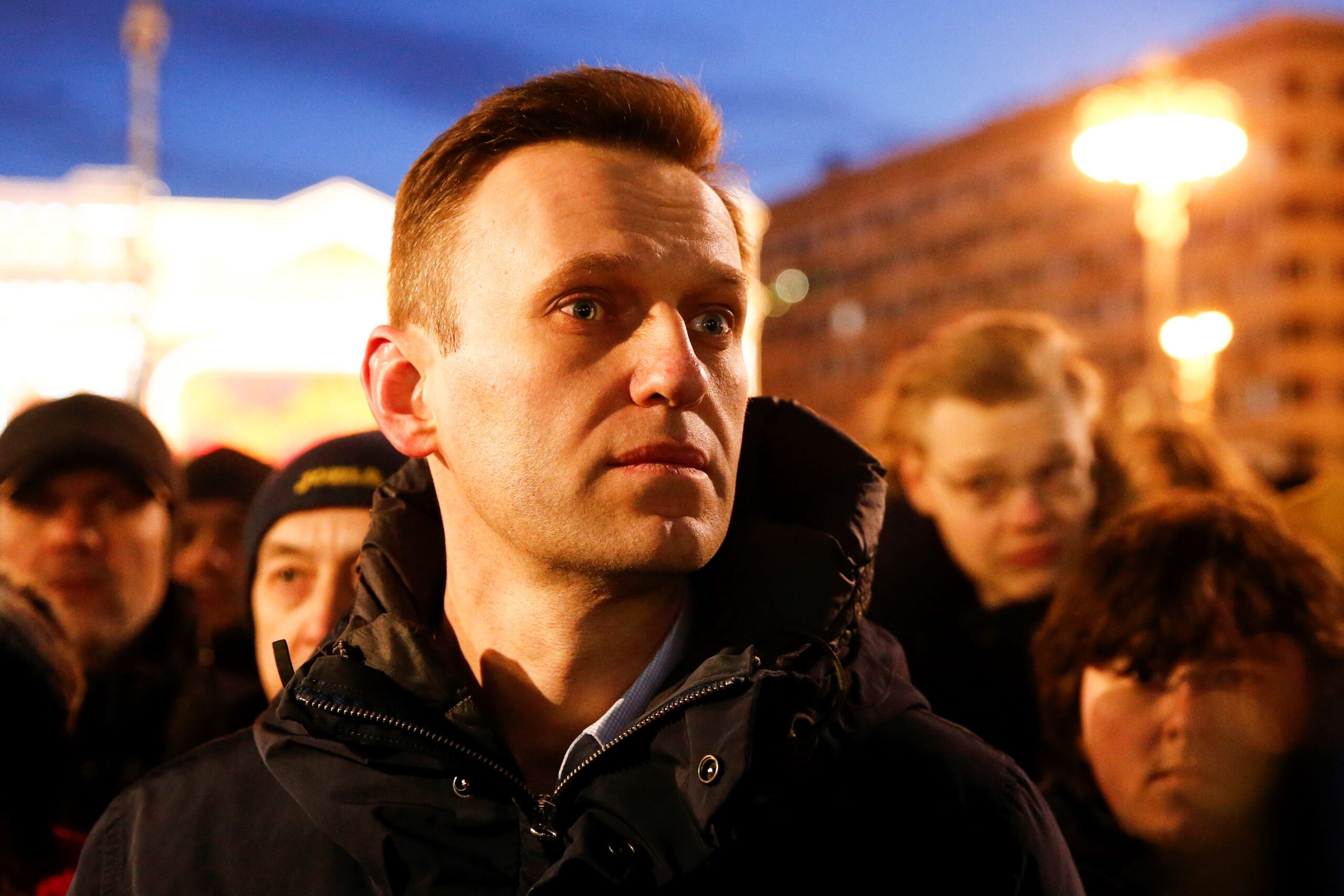
Vladimir Putin may have imprisoned, tortured, and killed the brilliant opposition leader, but even now Navalny is a threat to the corrupt autocracy Putin has built.
February 2024
Courageous, funny, brave, brilliant, creative, tenacious, charismatic — these are all the things that Alexei Navalny was in life, and what made him such a dangerous foe for a paranoid authoritarian ruler like Vladimir Putin. As President Joe Biden said in his remarks following the announcement of the opposition leader’s death in a harsh Arctic Circle prison camp, Navalny was everything that Putin is not. Navalny could have remained safely in Germany after he finished recovering from a near-lethal chemical poisoning by Federal Security Service (FSB) agents in August 2020, but he courageously insisted on returning to Russia a few months later, knowing that he would be arrested immediately for violating his parole (from a previous politically motivated conviction). He joked that while he was in a coma, induced by the FSB’s attempt to kill him, he wasn’t able to call his parole officer to tell him where he was.
Even in handcuffs, Navalny knew how to strike at the crookedness of the regime. Upon his detention at the airport in January 2021, Navalny’s Anti-Corruption Foundation released a video on YouTube, “A Palace for Putin,” documenting the boundless greed of the Russian dictator. Typical of Navalny’s exposés on elite corruption, this one was rife with biting sarcasm as he narrated scenes of an underground hockey arena, private wine cave, lavish gardens, and even a hukkah bar, all housed within the sprawling Black Sea complex built for the Russian dictator’s entertainment and at the expense of the average citizen. The fact that this video was viewed by millions after Navalny was in state custody was emblematic of his courage and tenacity. Whatever his circumstances, he never gave up.
Navalny had boundless charisma. He was one of the few Russian opposition leaders who could gather thousands of people on the streets of Russia’s largest cities to protest corruption (his signature issue) or stolen elections. He later built an organization spanning Russia’s eleven time zones, encouraging voters in creative and entertaining social-media posts to vote for any candidate most likely to defeat Putin’s United Russia, regardless of party. This system, called “smart voting,” was evidently enough of a worry for the regime that FSB agents sprinkled Navalny’s underclothes with Novichok nerve agent in 2020, assuming that it would kill him. It didn’t. As he later said, he accidentally survived — a testament to his tenacity. He went on to track down the FSB agents who had poisoned him, recorded a phone call with one of them while posing as an agent, and then published that video on his YouTube channel. It was characteristically brilliant — and very funny, too.
At the time of his death, Navalny had served the first few years of what was supposed to be a nineteen-year sentence for “extremism,” which had been tacked onto a previous sentence of eleven years. Before the verdict last summer, he read out a statement to the judge and his jailers, who could not understand why he would continue to fight Putin’s regime, even though it had cost him so dearly: “Maybe now it seems to you that I am crazy, and you are all normal, because you can’t swim against the current. And I think you’re out of your mind. You have a single, God-given life, and what have you decided to spend it on? … To help someone who has ten palaces build an eleventh?”
He told them that he was governed by his intellect and his conscience: “I love Russia. My intellect tells me that it is better to live in a free and prosperous country than in a corrupt and impoverished one.” Building a free and prosperous future for Russia required sacrifices — not just from him, but from all who wanted something different, something better.
Alexei Navalny was and remains an inspiration to millions of people within Russia’s borders and beyond, which is why — even in death — he remains dangerous to the stability of the corrupt autocracy that Vladimir Putin has built.![]()
Kathryn Stoner is senior fellow and the Mosbacher Director of the Center on Democracy, Development and the Rule of Law at the Freeman Spogli Institute, professor of political science at Stanford University (by courtesy), and senior fellow (by courtesy) at the Hoover Institution. Her most recent book is Russia Resurrected: Its Power and Purpose in a New Global Order (2021).
Copyright © 2024 National Endowment for Democracy
Image Credit: Sefa Karacan/Anadolu Agency via Getty Images
| FURTHER READING | ||

The Legacy of a True Russian PatriotAlexei Navalny loved Russia and was willing to risk everything for it. It is hard to grasp the magnitude of his death for his people and his country. |

The Putin MythPutin’s reputation as a skillful leader was buoyed by years of economic good fortune. But when his regime faltered, his rule descended into a fearful, repressive, paranoid state. |

What Putin Fears MostForget his excuses. Russia’s autocrat doesn’t worry about NATO. What terrifies him is the prospect of a flourishing Ukrainian democracy. |
